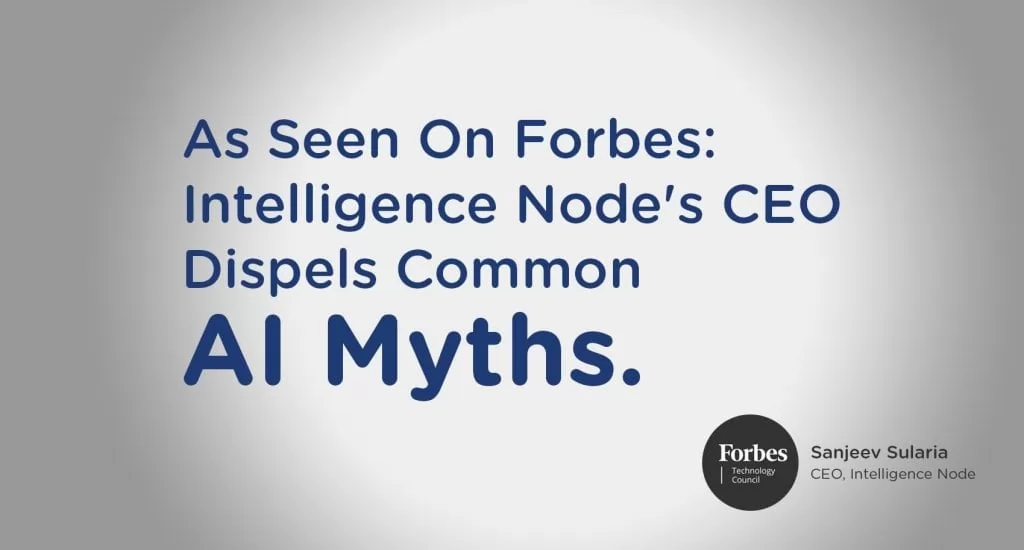Artificial intelligence, like any new technology with the potential to change the world, has inspired a doomsday narrative that seems more plausible each day. With significant strides this decade, AI finally seems to have arrived. Whatever form it takes from here on, one thing is certain: This is a divisive force capable of disruption. Ready or not, itwillaffect your industry.
Retail, unfortunately, had a relatively sluggish start at AI adoption compared to sectors like travel and finance. But as the industry tries to power through a dangerous slump and survive the era of online shopping giants, more and more retailers are warming up to the idea of an AI-driven business.
As we gear up to face this future, now seems the right time to sort facts from fiction.
Fiction: AI is a strategy.
It’s not. How you use it is.
With the major tech companies stepping up and investing in AI applications, everyone wants to respond with their own AI strategy — revising portfolios, acquiring startups, etc. It’s this silly managerial notion of magical AI fairy dust that will suddenly make their business intelligent.
Artificial intelligence can do amazing things. However, before it can, your teams need to know where to put it to good use. While you fear its takeover of the human race, do not underestimate the impact of a poorly designed predictions system. Invest in a vision and then pick the right AI to execute it with minimum scope for human errors and delays.
The best use cases are those with very specific, well-defined challenges — matching colors, tracking prices, collecting feedback. Break up bigger business goals into smaller challenges, particularly those that involve wading through a vast, ever-growing sea of data. AI is here to assist and augment human tasks, making room for more time and headspace to tackle bigger problems. The first and most important step is to identify these specific use cases that will give your business an edge, or at least make it easier to run.
Fiction: AI = chatbots.
The applications go far beyond marketing and customer engagement.
In retail, more often than not, AI is regarded merely as a tool for busywork. That is a misguided belief. AI capabilities are getting closer each day to influencing areas conventionally driven by human touch and intuition — like retail merchandising and inventory planning. AI can not only improve those processes that already have machine dependencies, but also help remove emotion and error from the decision making.
Retailers now have access to sophisticated insights to base business decisions on, for example, second-by-second changes in a competitive marketplace — things likely to be missed by the human eye, especially at a global scale. The technology has opened up new avenues for inspection and correction like inventory write-offs and loss of sales. AI has the power to disrupt the way retail operates in a very near future, and early birds can snag exponential growth if they got just a little more creative.
Fiction: AI is an expensive, long-term investment.
Investing in data and data scientists may seem daunting at first, especially in retail. Substantial costs and slow returns are often the reason companies see it as a risky bet. At the bottom of this misconception is the idea of getting an in-house team and infrastructure. Before jumping in and investing in AI verticals, figure out if you even need your own AI, team and all.
Tech companies are already spending big bucks to attract talent, mine quality data and develop proprietary algorithms. Invest in collaborating with the right partner if your business needs don’t mandate owning AI. You can reduce lead times, cut costs, and also have a considerable amount of flexibility to upgrade and revise your tactics along the way.
AI investments can be staggered if proprietorship is essential. Roll out in phases, building neural network layers over time. This gives you a monetary and operational flexibility to test, retract and revise. Take support from technology partners to develop your own AI and cut down R&D costs.
Fiction: AI is just another bubble.
It’s definitely here to stay.
If you look beyond the jargon, you’ll find that it’s a byproduct of our data transactions. No matter how small or big your store is, you and your customers are generating a staggering amount of data every second. Even if the business is offline, the competition is not. Discovery, consumption and service channels are going, almost irreversibly, digital. Not much is going to change in terms of wielding information for business, and those who don’t jump on this train will miss out.
Right now, it may feel like a bubble that may burst soon. Much of the perception stems from “AI” being used to market products, like “cellular,” “electric,” or “wireless” were used in previous decades — a novelty until it became ubiquitous. That didn’t mean we stopped using cellular phones — far from it. Neither are we going to decrease or give up using and generating data in the future, whatever nomenclature or shape it takes.
Unlearn And Upskill
Once you have AI, you still have half the battle left to win. The organizational ability to develop business insight and strategy based on analytics extracted by AI is more limited than we’d like to believe. Most managers and executives still do not have the expertise to consume the analytics that an AI infrastructure can produce. Lack of knowledge on the nature of AI and data is often the problem. It is a great time to invest in retraining. Let that be your AI strategy.




